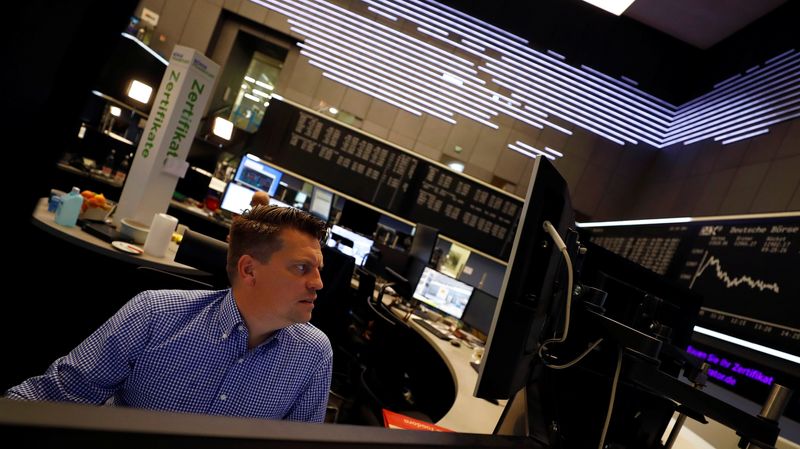A look at the day ahead in European and global markets from Stella Qiu
Most stocks in Asia are down on Friday, following the lead of Wall Street futures, ahead of the all-important payrolls report, which could push Treasury yields and the U.S. dollar even higher.
Both Nasdaq futures and S&P 500 futures were down 0.3%, after U.S. trading was closed overnight to mark the funeral of former President Jimmy Carter. European stock markets look set for a flat open.
That likely reflects the angst in global bond markets. The benchmark 10-year Treasury yield is just off an eight-month peak of 4.73% and threatening a major chart level at 4.739%. The 30-year yield climbed 11 basis points this week to the highest in over a year.
British government bond yields shot to the highest since 2008 as investors weighed the country’s fiscal outlook, though they have calmed somewhat for the moment.
Even China’s bond yields rose on Friday, after the country’s central bank said it will suspend treasury bond purchases temporarily. The reason offered was a shortage of paper, but analysts suspected it was aimed at propping up the yuan.
Much is now riding on the payrolls report, where median forecasts favour a rise of 160,000 in jobs in December with the unemployment rate holding at 4.2%.
Forecasts lie in a relatively tight range of 120,000 to 200,000, suggesting more scope for an outside surprise. There’s an added wrinkle from the annual reanalysis of the household survey, which could see the unemployment rate revised down for recent months.
A surprisingly strong report will most likely drive 10-year yields past 4.739%, with bears hungering for the psychologically important level of 5%, highs not seen since 2007.
That would boost the already mighty U.S. dollar, which is poised near two-year highs and wreaking havoc in emerging markets.
The reaction in the stock market could be negative too, with high valuations now being challenged by a rising term premium and higher discount rates.
So investors may be better off praying for a soft report, but not so soft that it endangers the goldilocks scenario for the U.S. economy.
Then again, it would likely need to be an extremely weak report to shift the dial on Fed rate cuts, given investors and the Fed are now more focused on how Trump’s policies might unfold over the next few months.
Markets are already back to just 43 basis points of easing this year, equivalent to fewer than two rate cuts, with the first of those not fully priced in until June when the potential impact of Trump’s proposals becomes clearer.
In the foreign exchange market, the dollar is enjoying the sixth straight week of gains. The British pound is an underperformer, down 1% to $1.2303, the lowest in over a year.
Overnight, a slew of Fed officials came out and agreed there is no rush to cut interest rates.
Key developments that could influence markets on Friday:
— France industrial output for November
— U.S. nonfarm payrolls report for December



